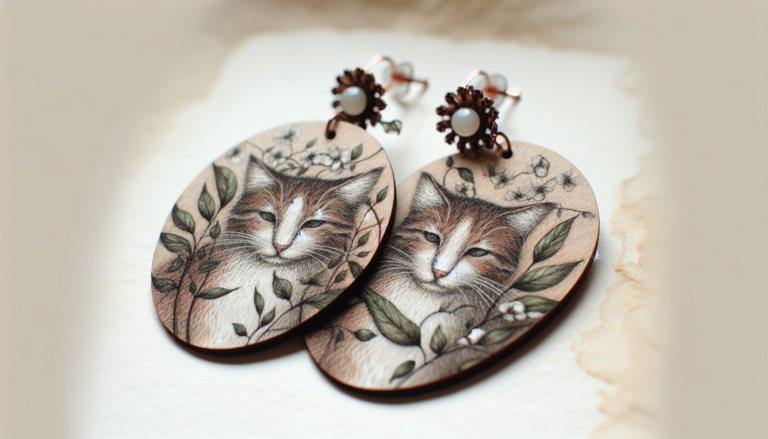Cats Butt Smells: Uncover the Mystery Behind the Odor
Cats butt smells are a peculiar and sometimes worrisome phenomenon for pet owners. At Cat Karma Creations, we prioritize keeping your feline friends healthy and happy. This article will guide you through the discovery of common causes and effective management strategies to tackle cats butt smells, ensuring your cat smells as lovely as they look. From routine vet visits to proper grooming, find out how you can help your cat maintain a pleasant fragrance. For inquiries or further assistance, feel free to contact us or explore our jewelry collection.
Understanding Cats Butt Smells
Cats Butt Smells: Anal Gland Dilemmas
The cats butt smells can often be attributed to issues with their anal glands. Positioned near the anus, these glands can become blocked or infected, emitting a strong odor. Regular scooting, signs of discomfort, and the presence of a pungent smell are key symptoms. It’s crucial to address these problems promptly to avoid the risk of severe health complications.
Routine veterinarian visits are vital to manage anal gland issues effectively. Vets can express the glands manually and prescribe treatment such as antibiotics if infections are detected. Occasionally, surgical intervention may be necessary. Preventive measures include a proper diet and adequate hydration for your cat. For further advice on pet care or to learn about our jewelry, please reach out at (800) 343-1604 or info@catkarmacreations.com.
Skin Conditions and Cats Butt Smells
Skin infections can be another source of cats butt smells, marked by redness, itching, hair loss, and a noticeable smell around your cat’s backside. These infections might be the result of bacteria, fungi, or allergies.
Effective treatment includes topical or oral medications recommended by your veterinarian. Keeping your cat’s coat healthy through regular grooming can help prevent infections. A hypoallergenic diet coupled with flea prevention methods can minimize the chances of skin components triggering cats butt smells. For cat care tips and our distinct jewelry, engage with us on Facebook or Instagram.
Identifying Urinary Causes of Cats Butt Smells
Urinary tract infections (UTIs) present another cause for cats butt smells. Symptoms such as frequent urination, straining, and strong urine odor are common. Bacterial infections, insufficient water intake, or stress can be culprits.
Typical treatments include antibiotics and therapies to alleviate pain and provide fluid intake support. Prevention focuses on proper hydration and stress reduction. Early veterinary detection can preempt severe smells. For additional insights, visit our Nature Inspired collection for captivating cat-themed jewelry.
Cats Butt Smells Linked to Flea Trouble
Flea infestations contribute significantly to unpleasant odors. Signs include scratching, redness, and sudden hair loss. Fleas trigger flea allergy dermatitis, intensifying skin irritation and odor.
Regular flea control practice is essential. This involves flea shampoos, medication, and a free-of-flea home environment. Routine grooming helps spot flea presence early, mitigating the spread and resulting odor. For flea management tips and our sleek sterling silver pieces, explore our Sterling Silver section.
Diagnosis and Awareness
Spotting Symptoms of Cats Butt Smells
Recognizing the indicators of smelly rears is vital. Symptoms include unusual odors, scooting, or changes in grooming behavior. Observe your cat’s habits to catch early warnings.
Grooming and attentive care help identify issues sooner. Notice any alarming signs? Don’t neglect veterinary advice. For care advice, reach us via our contact form or browse our boutique.
Veterinarian Consultation Timings
If symptoms are ongoing or worsening, professional veterinary assistance is necessary. A vet can pinpoint root causes with absolute precision, proposing timely interventions.
Diagnosis may range from physical examinations to specific tests such as blood work or imaging. Stay informed via our social networks – find us on Facebook or follow us on Instagram for the latest.
Proactive Steps
Maintain Regular Vet Visits
Frequent vet check-ups offer peace of mind ensuring early issue detection. Vets provide health assessments, preventive advice, and essential treatments, essential for deterring cats butt smells.
Keep health check routine dates to safeguard your pet’s wellbeing. Discover more on our contemporary designs and customized items at the Shop.
Effective Grooming Practices
Correct grooming is integral for spotlessly clean pets. Regular brushing controls hairballs, contributing to a scent-free cat. Gentle baths further support skin health and minimize smell.
Careful grooming checks reveal skin infections earlier. Turn grooming into a delightful bonding exercise. Learn more about our grand cat brooches on our Elegant Cat Brooch page.
Balanced Nutrition Counts
Good nutrition is vital to combat cats butt smells. A fiber-rich, nutrient-dense diet keeps digestion in check, reducing smell risks.
It’s important to choose cat-friendly foods, avoiding troublesome diets. Your vet can guide specific dietary choices, benefiting your cat’s digestion. Visit our Cat Pose Yoga Block page for inspiring ideas.
Flea Defense Mechanisms
Prevent fleas with control products and a clean habitat. Using preventatives stops infestations and odors. Evaluate topical methods, oral aids, and collars.
Additionally, upkeep home hygiene to remove fleas. Contact with us for flea deterrent details or peek at our adornments through Facebook or Instagram.
Remedial Solutions
Clinical Treatment Paths
Professional interventions are necessary for underlying causes of primary cats butt smells. Whether dealing with anal glands or skin infections, veterinary guidance ensures health restoration.
Treating UTIs or combating flea infestations requires strategic plans laid by your vet. Check our website here for more about our pieces and philanthropy.
Home and Natural Approaches
Home remedies also alleviate smelly woes from cats butt smells aspects. Scent-neutralizing shampoos, diet management, and ensuring hydration stand as practical home-based actions.
Natural solutions, like aloe for skin or essential oils for fleas, offer relief. Additional ideas, follow us as trusted partners on Facebook and Instagram.
Memorable Quote
"A cat makes a house feel like home with its subtle scent and gentle presence." – Anonymous
Interesting Statistics
According to a study by feline experts, nearly 70% of cat health issues can be alleviated through proper diet and hydration, reducing the occurrence of odors in homes worldwide. (Source: Pet Care Journal, 2022)
Three Effective Tips
- Schedule Routine Exams: Regularly meeting with your vet aids in early problem detection related to unpleasant odors.
- Consistent Grooming: Clean and groom pets routinely to avoid future odor-related dramas and promote cleanliness.
- Nutritional Balance: Provide healthy, nutrient-rich food choices, crucial in eliminating digestive-related scents.
FAQs on Cats Butt Smells
What cues indicate a smelly rear end in cats?
Alerting signs include odors, butt-dragging, or increased grooming efforts in a specific area.
How to shield my cat from flea infestations?
Implement consistent flea products and maintain hygiene practices in your household environment favorably.
Suspecting UTI issues – what next?
Consult a vet on observing repeat urination struggles or foul smells, ensuring prompt diagnosis.
Managing anal gland troubles effectively?
Frequent vet involvement aids in gland expression or, if necessary, medicated resolutions beating anal gland woes.
Final Thoughts on Cats Butt Smells
Vigilance and care are paramount in preventing and managing cats butt smells. With these tips, ensure your pet enjoys optimal well-being, devoid of unpleasant odors. Trust in comprehensive routines and maintain open communication with your vet for the best outcomes. Feel free to contact us for jewelry inspirations or queries about feline care through our collections.



